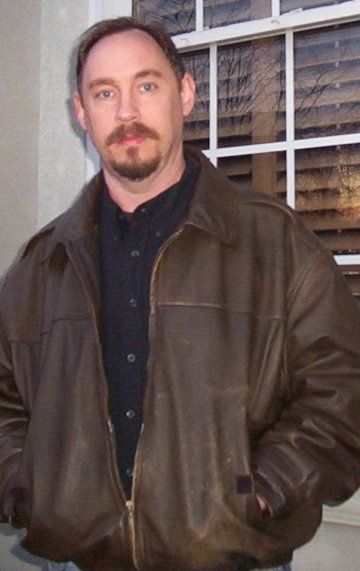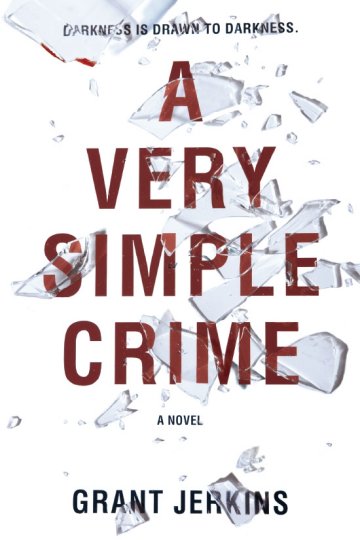

|

Jerkins doesn't pull any punches; he tells unabashed truths about mental illness, revenge, family dysfunction and twisted sexual appetites. A woman has been murdered. Evidence points to her mentally handicapped teenage son as the most likely culprit. But as the story opens, we have learned it's the husband who is facing trial for the murder. Insidious doubts about yet another suspect enter the picture. In the realm of lawyers' offices and the courtroom, a disgraced D.A. takes a stab at redeeming his career; his own hopes for a brighter future are riding on this case. Here the author reveals yet another side of humanity - where egos come into play. Grant Jerkins has written a bold, well-crafted story and refrained from tidying up unpleasant truths that make us squeamish. He keeps us guessing to the end and wraps up the story with a credible twist. And here's a nice surprise: Grant Jerkins is one of us.

He became a loyal reader of BookThink when he found that selling books online could supplement his family's income while he worked on his writing career. A Very Simple Crime (his first novel) was first published by Berkley Publishing Group in November, 2010, then in hardcover by The Mystery Guild Book Club, and it will soon be released in a hardcover large print edition by Thorndike. It's won positive reviews from The Washington Post and The New York Times . The book has been adapted into a screenplay by Academy Award nominated screenwriters, and Barbet Schroeder has agreed to direct the film version, so there is much more to come! BOOKTHINK: First of all, I understand you've been a BookThink reader and a bookseller while working on your writing. JERKINS: Yeah, I was just thinking about that. I'm very bad with dates and time frames, but it's been five or six years now that I've been a full-time bookseller and I remember quite specifically wanting to be a bookseller but being scared of what the consequences might be. BOOKTHINK: And how has it turned out? JERKINS: Quite well. I mean, I don't want to make it sound like I've become wealthy from it. But the economic impact to our family - going from my wife and I both working full time to this - there was no difference ... you couldn't tell a difference. Most new businesses start off not making a profit. From day one, I made a profit selling books. It's that online thing; you aren't paying rent or paying employees. There are so many unanswered questions in your mind when you begin. I remember reading several of Craig Stark's articles on the internet, and it gave me the courage to go ahead and give it a try. BOOKTHINK: There's a pretty sharp learning curve to selling books. JERKINS: Now, these years later it seems simple. But I guess anything is like that. When you are first going into it, you have so many questions. I do want to get the message out there - how much Craig has been of help to me; what a wonderful human being and bookseller he is. He is directly responsible for getting me on the road to being a bookseller. I think the world of him. BOOKTHINK: I agree. There have been ups and downs in the book selling world, and he's hung right in there with this website, and I think he's done a lot of people a great service. JERKINS: I do too. BOOKTHINK: I'm amazed by your success, because this is your first novel. I understand it was the winner of the Writer's Network Screenplay and Fiction Competition. Can you tell me about that competition and what it involved? JERKINS: I had gotten to know the Writer's Network because I had dabbled in screenplays - I probably shouldn't say dabbled because I've written about seven of them. You think it's hard to get a book published? It's much harder with a screenplay. I'd worked with them to read one of my screenplays - the first one I'd ever written - and they would give you feedback as far as your style, marketability and things like that, and I was really impressed with what they did, so it was the start of a good relationship. When the contest came up, I had the book already written and had been getting rejections from publishers. So I entered the contest. Sure enough, six months later I got a phone call saying that I had won the fiction category. BOOKTHINK: That must have picked your head up! JERKINS: It felt great. I thought, "Well this is it - I've made it ... good-bye common people!" But of course, that's not how it worked out. What I won - monetarily - was a thousand dollars, which, of course, was wonderful. But the more important thing I won was that they would submit the novel to agents and publishers - mainly agents - to get me representation. Again, it didn't work out. People kept saying no to it because it didn't feel commercial enough. It was too dark. It was the one thing I heard more than anything else - that it was "too dark." So they tried, but it didn't work out. But the woman who runs the Writer's Network - Audrey Kelly, the publisher of Fade In Magazine - she pretty much fell in love with the book. And even after the contest year had passed, she kept trying to do something with it. In fact, she told me she had read the novel to people over the telephone - that's how much she loved it. She got it to screenwriter Nicholas Kazan. He read it, liked it, and responded to it. He decided that he would write a screenplay based on the book. So he and a man named Terry Curtis Fox, who is a playwright, wrote the screenplay together and set about getting it produced. And again, that's many years ago, but it seems to take forever to get a film financed and for the stars to align - for talent to sign up for it, for the producer to put up money. At one time, Adrien Brody was attached to it. That would have been wonderful. I don't know what happened, why that fell through; but I've been told not to lose heart. I have a feeling this is going to be the year that they actually go into production. They have the director Barbet Schroeder firmly attached. I think this is going to be the year. BOOKTHINK: I hope it all comes together for you. I interviewed author Julianne Hoffman recently. And she told me there's a movie option on her first book, Retribution. And it's the same thing - it takes a long time for all things to come together. But she actually tried writing the screenplay herself - they let her try it - but then they said, "Sorry." And she said it's hard; it's a totally different thing than writing a novel. JERKINS: It is. I feel like I'm better at writing a novel than a screenplay. In general, I think if you've written a novel it's almost better to let someone else adapt it. They will see the strengths and the weaknesses that you won't see. The screenplay that Nick and Terry came up with - I recognize it as brilliant; I recognize it as something I never could have done on my own. Talking about how hard it is to get a film made - are you familiar with the film Million Dollar Baby ? BOOKTHINK: Yes. JERKINS: That was a hard project to get made. Clint Eastwood went from studio to studio, saying, "Hey, I'm Clint Eastwood, I have a screenplay. I'm going to direct it, I'm going to star in it, and last year's Oscar winner is going to star in it with me." But even he kept getting no's…because of the downer ending. And my book has the downer beginning, the downer middle, and the downer ending. BOOKTHINK: It was a bit dark. It took some effort for me to push on with it the first few chapters. I was pretty much revolted by the characters. It was so well written, however, I had to keep going. It was sort of like watching a train wreck; I couldn't quite turn away. And then about half-way in I found myself cheering for Leo the Lawyer and he carried me through to the end. That turned out disappointing too, but life can be that way. One thing I did come away with is that things are not always what they appear, and the justice system can really be just plain wrong about who is guilty. And I kept reminding myself, crime isn't pretty! Criminals are going to have something wrong with their thinking. There are stories and films that can make some charming criminal types, but when it comes to murder, it's probably not going to be people you feel warm and fuzzy about. JERKINS: I wrote it a long time ago. I don't think I'll ever write a book quite like that again. BOOKTHINK: It's probably a good thing you wrote it when you had it in you, because it's been published and it's got a screenplay, and that's terrific. JERKINS: I'm delighted that it's published, and I think it seems to be selling relatively well. I was really lucky in regard to reviews and attention. It was reviewed in The New York Times and The Washington Post. There are a lot of writers that are much better than me and who have been toiling at this a lot longer that have never been reviewed in those papers. I was very lucky that it happened. I'm not sure how it happened. But it did. BOOKTHINK: Well, you grabbed their attention. JERKINS: I don't know if you've ever read Bret Easton Ellis. My book is dark - but compare it to Bret Easton Ellis. My book is a ray of sunshine! He writes really disturbing stuff. His American Psycho is the tip of the iceberg. There are a lot of writers that dwell on the dark side, but I don't think that A Very Simple Crime is that shocking or that disturbing. Maybe it's that a reader wants to identify with someone; it's just natural when you start to read a book that you want to do that. >>>>> Article continues on next page >>>>>
Questions or comments?
| Forum
| Store
| Publications
| BookLinks
| BookSearch
| BookTopics
| Archives
| Advertise
| AboutUs
| ContactUs
| Search Site
| Site Map
| Google Site Map
Store - Specials
| BookHunt
| BookShelf
| Gold Edition & BookThink's Quarterly Market Report
| DomainsForSale
| BookThinker newsletter - free
Copyright 2003-2011 by BookThink LLC
|

|
|